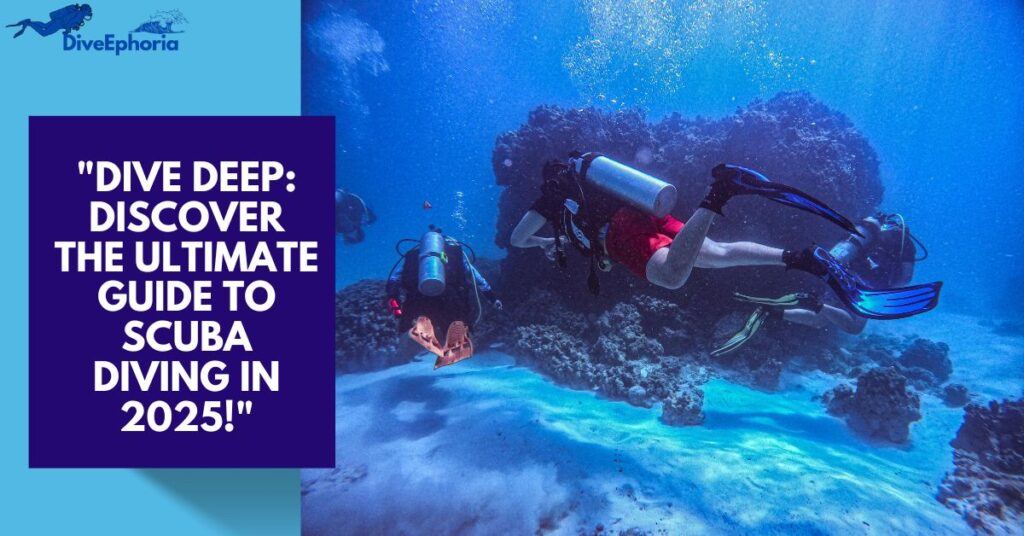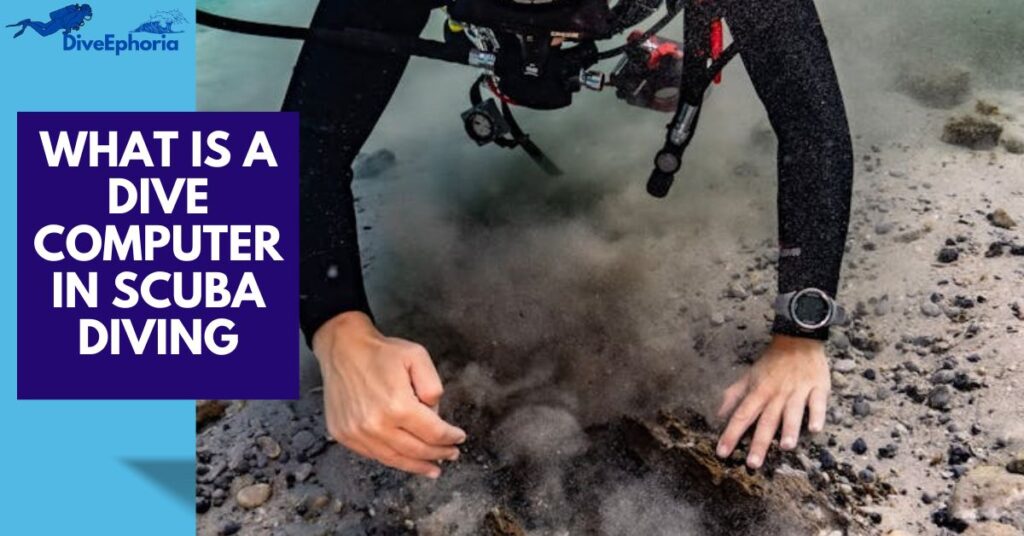![The Ultimate Guide to [How Old Do You Have to Be to Scuba Dive] in [2025]](https://diveephoria.com/wp-content/uploads/2025/01/1-30-1024x536.jpg)
Table of Contents
Introduction
Scuba diving offers a unique chance to witness marine life up close and experience the serenity of being underwater. It’s an exciting adventure that appeals to people of all ages—but it often raises an important question for parents, teens, and young enthusiasts: how old do you have to be to scuba dive?
This is a common concern for families planning vacations, young thrill-seekers dreaming of underwater exploration, or even guardians wondering if their child is ready for this responsibility. With different certification agencies offering varying age requirements and program structures, it can quickly get confusing.
The good news? This guide will clear up the confusion. We’ll break down the minimum age requirements across major scuba diving organizations, explain the types of youth diving programs available in 2025, and help you assess whether your child is ready—mentally, physically, and emotionally—to take the plunge into the world of scuba diving.
Scuba Diving Age Requirements: An Overview
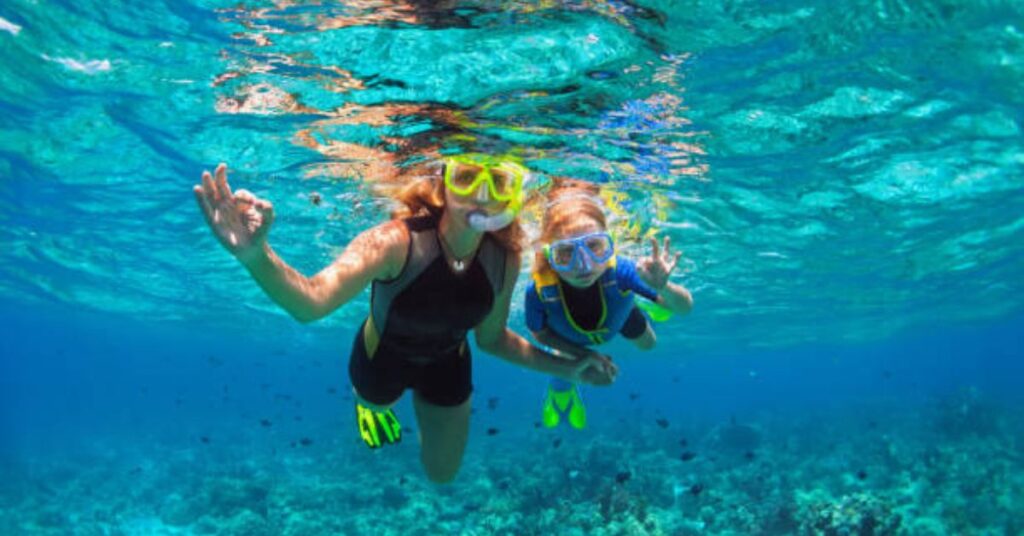
When planning your underwater adventure, one of the most common questions people ask is: What is the minimum age to scuba dive? The answer varies depending on the certification agency, the type of training program, and the child’s physical and emotional readiness.
In this section, we’ll break down the age requirements for scuba diving certifications in 2025 across major training organizations like PADI, SSI, NAUI, and SDI. We’ll also compare beginner scuba programs for children and full certification paths for older teens and adults.
Scuba Diving Age Requirement Chart for Certifications
| Age Range | Program Type | Certification Agencies | Max Depth | Notes |
|---|---|---|---|---|
| 8+ | Beginner Programs | PADI, SSI, SDI | 2–6 meters (6–20 ft) | Introductory, shallow water only, fully supervised |
| 10–14 | Junior Certifications | PADI, SSI, NAUI | 12–18 meters (40–60 ft) | Must dive with a certified adult or professional |
| 15+ | Full Certifications | PADI, SSI, NAUI, SDI | 18 meters (60 ft) and beyond | No junior restrictions, internationally recognized |
Beginner Scuba Diving Programs for Kids (Ages 8 and Up)
If you’re looking to introduce your child to the world of scuba diving for kids, many organizations offer entry-level experiences designed specifically for younger divers in a safe and controlled environment.
🐠 PADI Bubblemaker (Age 8+)
- Minimum Age: 8 years old
- Maximum Depth: 2 meters / 6 feet
- Program Highlights: Kids use real scuba gear and explore underwater in a pool or shallow water setting under professional supervision. This is a fun and educational first experience designed to build confidence and comfort underwater.
🌊 SSI Try Scuba (Age 8+)
- Minimum Age: 8 years old
- Maximum Depth: 5 meters / 16 feet
- Program Highlights: A great way for children to get familiar with scuba equipment and underwater breathing. Conducted in confined water environments, usually in pools or resort-style training centers.
🧒 SDI Future Buddies Program (Age 8+)
- Minimum Age: 8 years old
- Maximum Depth: 6 meters / 20 feet
- Program Highlights: Designed to teach basic scuba diving safety, breathing techniques, and underwater communication—while keeping it light-hearted and age-appropriate.
These programs are not full certifications, but they serve as a safe and exciting way for kids to experience underwater adventure for the first time.
Junior Scuba Diving Certifications (Ages 10–14)
Once children turn 10, they’re eligible to begin junior-level scuba diving certifications. These programs provide structured training, more diving time, and deeper water experience—but still include safety restrictions due to age.
✅ PADI Junior Open Water Diver
- Minimum Age: 10 years
- Depth Limits:
- Ages 10–11: 12 meters / 40 feet
- Ages 12–14: 18 meters / 60 feet
- Requirements: Must dive with a certified adult (over 18) or a PADI Professional.
- Notes: This certification can be upgraded to the full Open Water Diver certification at age 15.
✅ SSI Junior Open Water Diver
- Minimum Age: 10 years
- Depth Limits:
- Ages 10–11: 15 meters / 50 feet
- Ages 12–14: 18 meters / 60 feet
- Requirements: Parental consent and in-water supervision required.
- Notes: Highly customizable and often taught through local dive shops or SSI Dive Resorts.
✅ NAUI Junior Scuba Diver
- Minimum Age: 10 years
- Depth Limit: 18 meters / 60 feet
- Requirements: Must dive under adult supervision.
- Notes: Offers a well-rounded curriculum focused on safety and conservation.
These junior certifications include comprehensive scuba diving theory, confined water training, and open water dives, preparing young divers for more advanced programs in the future.
Standard Scuba Certifications (Ages 15 and Up)
At age 15, individuals are eligible to enroll in standard scuba diving certifications with no “junior” limitations. These are full open water certifications, widely recognized around the world and accepted by dive operators in all major destinations.
🏅 Examples of Standard Certifications:
- PADI Open Water Diver
- SSI Open Water Diver
- NAUI Scuba Diver
- SDI Open Water Scuba Diver
Key Benefits:
- No age-related depth restrictions
- Ability to dive with any certified buddy
- Access to advanced-level courses (e.g., Advanced Open Water, Rescue Diver)
Most of these programs allow dives to 18 meters (60 feet) and are the gateway to recreational scuba diving worldwide.
Key Differences Between Certification Agencies
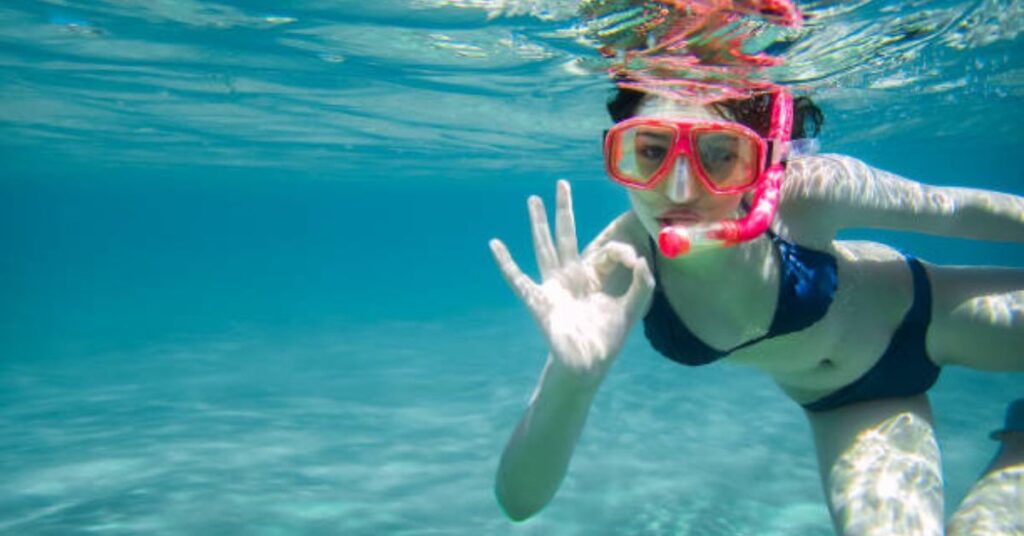
When it comes to introducing kids to scuba diving, understanding the minimum age requirements and program offerings of the top certification agencies is crucial. The five biggest scuba diving certification organizations—PADI, SSI, NAUI, BSAC, and SDI—each have unique age limits, training programs, and depth restrictions designed specifically for junior divers. These differences can influence which program is best suited for your child or family’s diving plans in 2025.
Below is an expanded comparison of these agencies, helping you navigate the options and select the right path for safe and enjoyable family scuba diving experiences.
Certification Agencies Compared: Minimum Age, Programs, and Depth Limits
| Agency | Minimum Age | Junior Program Name | Maximum Depth for Juniors | Program Highlights |
|---|---|---|---|---|
| PADI | 8 years | Bubblemaker | 2 meters (6 feet) | Ideal for young kids, Bubblemaker introduces scuba basics in a pool or shallow water, focusing on safety and fun. Suitable for first-time divers under close supervision. |
| SSI | 8 years | Try Scuba | 5 meters (16 feet) | Try Scuba is a beginner program in controlled environments that builds confidence in young divers and introduces equipment use and underwater breathing techniques. |
| NAUI | 10 years | Junior Diver | 18 meters (60 feet) | NAUI’s Junior Diver program offers a comprehensive certification with open water dives and emphasizes safety, dive planning, and underwater skills. Parental supervision required. |
| BSAC | 10 years | Discovery Diver | 12 meters (40 feet) | BSAC’s Discovery Diver is a popular program in the UK and beyond, giving juniors the chance to dive in open water with a qualified instructor, focusing on safe exploration and practical skills. |
| SDI | 8 years | Future Buddies | 6 meters (20 feet) | SDI’s Future Buddies program helps kids experience the joy of diving with safety-first training in shallow water environments, encouraging early comfort and skill development. |
What This Means for Families Planning to Dive Together
Many parents want to share the incredible experience of scuba diving with their children but are unsure at what age it’s safe or legally allowed. Understanding these differences helps families plan dives that match their children’s age and skill level while prioritizing safety.
- Younger kids (ages 8–9) can start with introductory programs such as PADI Bubblemaker, SSI Try Scuba, or SDI Future Buddies, which are tailored for shallow water diving with direct instructor supervision. These programs are perfect for family vacations where safety and fun are the main goals.
- Kids aged 10 and up can enroll in more structured junior certification courses such as NAUI Junior Diver or BSAC Discovery Diver. These certifications allow for deeper dives (up to 18 meters in some cases) but still require adult supervision during dives, making them ideal for families wanting to dive in open water together safely.
- In all cases, adult supervision and professional instruction are mandatory for junior divers, ensuring that every dive is conducted with safety and responsibility.
Safety, Training, and Supervision: The Cornerstones of Junior Diving Programs
Across all certification agencies, the emphasis is on providing age-appropriate training that respects young divers’ physical and emotional development. The programs include:
- Classroom or online theory tailored for younger learners
- Confined water sessions (usually in pools) to practice equipment use and emergency skills
- Supervised open water dives with certified instructors or dive professionals
- Detailed attention to safety protocols such as buddy systems, controlled depths, and dive limits
These measures ensure that family scuba diving is not only thrilling but also safe and confidence-building for children and teens.
Factors to Consider Before Letting Kids Scuba Dive
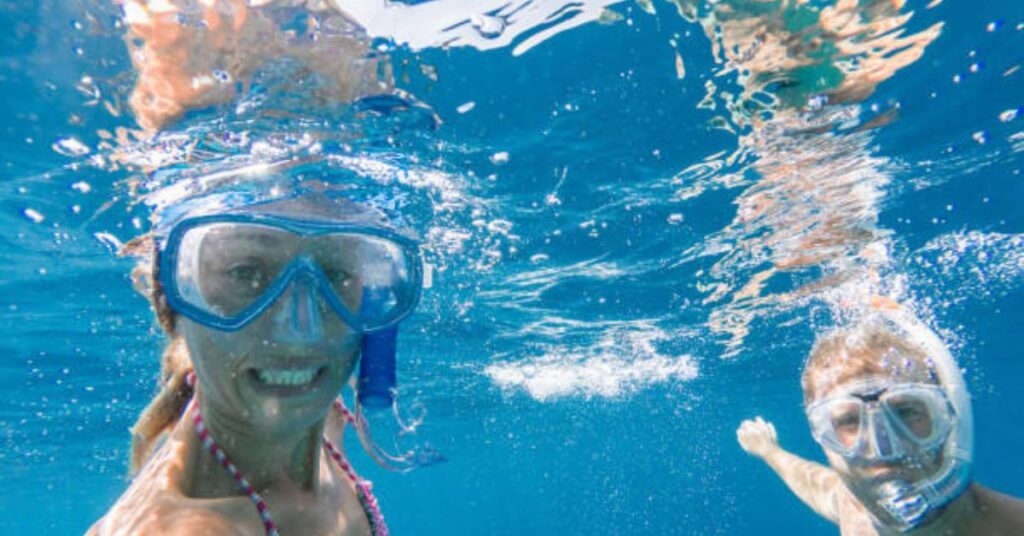
How old do you have to be to scuba dive? While age requirements set the baseline, several important factors go beyond just hitting the minimum age. Preparing your child properly and making sure they’re truly ready is essential for a safe and enjoyable first dive experience.
Before enrolling your child in any scuba diving program, take a close look at these critical considerations to ensure their underwater adventure is positive and rewarding.
1. Interest and Comfort in the Water
One of the most important factors is your child’s enthusiasm and comfort level with water. Scuba diving is exciting but requires mental readiness and willingness. Ask yourself:
- Does your child show genuine interest in learning to scuba dive?
- Are they comfortable swimming and spending extended time in the water?
- Do they feel confident wearing snorkeling or diving gear?
Children who are nervous or unwilling may struggle with the training or safety protocols. Basic swimming ability is essential before starting any scuba program, so consider enrolling them in swimming lessons if needed.
2. Reading and Comprehension Skills
Scuba diving courses include important theory lessons covering safety procedures, equipment usage, and underwater communication. Your child needs to:
- Understand and retain basic safety rules
- Follow instructions carefully
- Learn to read dive tables or digital dive computers in some programs
Ensure your child’s reading and comprehension skills are strong enough for the course materials, which can vary depending on the certification agency. Many junior programs offer kid-friendly learning tools and videos, but a minimum level of comprehension is vital.
3. Physical Fitness and Health
Scuba diving requires a moderate level of physical fitness and stamina, even in calm, shallow water. Before allowing your child to dive, consider:
- Their overall health status (any respiratory, ear, or cardiovascular issues can be problematic)
- Ability to swim confidently for extended periods
- Ability to manage dive equipment comfortably
Most certification agencies require a medical questionnaire or doctor’s approval prior to participation. Be sure your child meets these medical requirements to dive safely.
4. Availability of Kid-Sized Equipment
Not all dive centers or resorts have gear tailored for children. It’s important to check that the dive shop or training facility offers:
- Small, lightweight tanks
- Properly fitting masks and fins designed for smaller feet and faces
- Wetsuits appropriate for children’s sizes and body shapes
Using ill-fitting gear can compromise safety and comfort underwater. Look for facilities specializing in youth scuba diving equipment or those that explicitly advertise kid-friendly programs.
5. Quality of Supervision and Training Environment
When choosing a scuba diving course for kids, supervision and teaching quality are paramount. Look for programs that provide:
- Low instructor-to-student ratios, ensuring personalized attention
- Experienced instructors trained to work with children and teens
- Safe, controlled environments such as pools or shallow, calm waters for initial training
- Positive reviews and certifications from reputable agencies like PADI, SSI, or NAUI
A supportive and well-structured training environment helps young divers build confidence and develop essential skills safely.
By carefully considering these factors, parents can confidently decide when their child is ready to start scuba diving and choose the right program that ensures fun, safety, and lasting memories under the sea.
Benefits of Scuba Diving for Kids
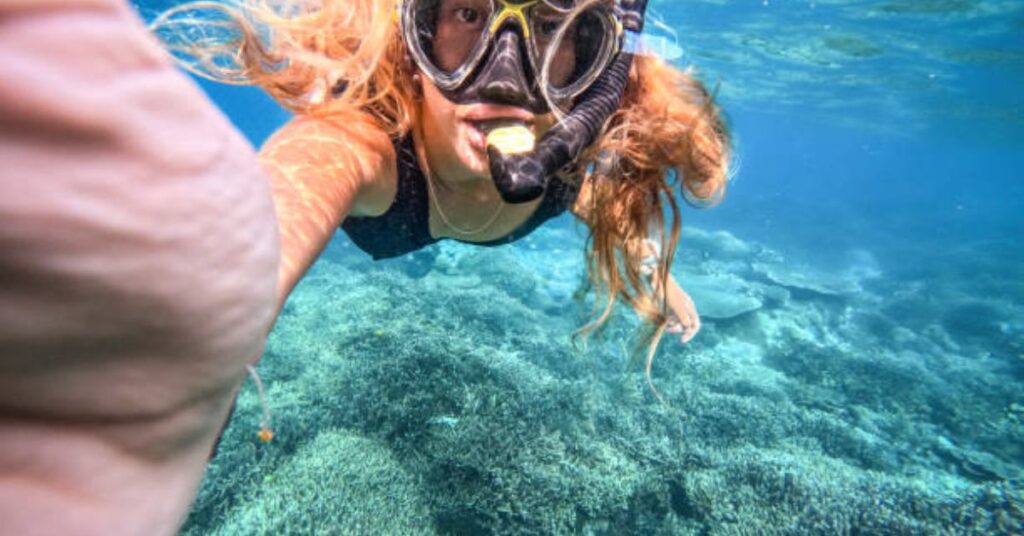
Scuba diving isn’t just an exciting adventure — it’s also an educational and personally enriching activity for children. Beyond the thrill of exploring underwater worlds, young divers gain valuable skills and experiences that can positively impact their growth and development. Here are some key benefits of scuba diving for kids:
1. Environmental Awareness and Marine Conservation
Scuba diving introduces children to the vibrant ecosystems beneath the surface, sparking curiosity and respect for marine life. Kids learn firsthand about coral reefs, fish species, and underwater habitats, helping to build a deep understanding of the ocean’s fragility. This early exposure often inspires a lifelong commitment to environmental stewardship and conservation efforts, turning young divers into advocates for protecting the seas.
2. Confidence Building Through Mastering Skills
Learning to scuba dive requires focus, discipline, and overcoming initial fears. As kids master breathing techniques, equipment handling, and underwater communication, they experience a significant boost in self-confidence and independence. Achieving scuba certifications and successfully completing dives provides a sense of accomplishment that positively influences other areas of their lives.
3. Enhanced Problem-Solving and Decision-Making Skills
Diving teaches children how to think critically and make quick, informed decisions in an unfamiliar environment. From monitoring air supply to managing buoyancy and responding to unexpected situations, young divers develop strong problem-solving abilities and situational awareness that translate well into everyday challenges.
4. Unique Family Bonding Opportunities
Scuba diving is a fantastic way for families to connect and create lasting memories. Sharing underwater adventures fosters family bonding through teamwork, trust, and shared experiences. Whether on vacation or at local dive sites, diving together strengthens relationships and creates stories that children and parents will cherish forever.
By encouraging kids to dive, parents provide them with much more than just a recreational hobby. They open doors to personal growth, environmental consciousness, and unforgettable family experiences.
Conclusion
Scuba diving offers an incredible opportunity for children and adults to explore the breathtaking underwater world while gaining valuable skills and unforgettable experiences. Although the minimum age to scuba dive varies depending on the certification agency and program, many reputable organizations offer introductory courses for kids as young as 8 years old. Junior certifications, allowing deeper and more independent diving, are typically available starting at age 10.
By understanding the age requirements, assessing your child’s readiness, and selecting the appropriate certification program, you can ensure a safe, enjoyable, and educational diving journey for your family. Scuba diving not only introduces kids to marine life and conservation but also builds confidence, problem-solving skills, and strengthens family bonds.
If you’re ready to take the plunge, reach out to your local dive center or research family-friendly diving destinations to begin your child’s underwater adventure in 2025. With the right preparation and guidance, your child can become part of a vibrant community of young divers discovering the wonders beneath the waves.
FAQs :
Can a 7-year-old scuba dive?
No. Most certification agencies require children to be at least 8 years old to participate in introductory programs like PADI’s Bubblemaker or SSI’s Try Scuba.
How deep can a 10-year-old scuba dive?
A 10-year-old with a junior certification can dive up to 12 meters/40 feet with a certified adult or professional.
Do kids need to be strong swimmers to scuba dive?
Yes, basic swimming skills are essential. Children should feel comfortable in water and be able to swim a short distance without assistance.
Is scuba diving safe for children?
Yes, when conducted with proper training, equipment, and supervision, scuba diving is safe for children. Choosing a reputable training program is crucial.
What’s the difference between junior and regular certifications?
Junior certifications have age-specific restrictions, such as maximum depth and supervision requirements. Once the diver reaches 15, these certifications typically upgrade to standard certifications.

